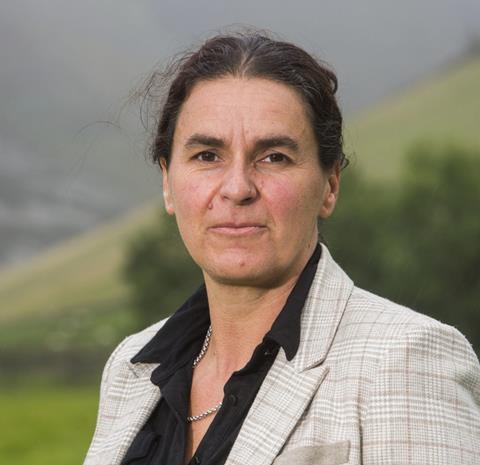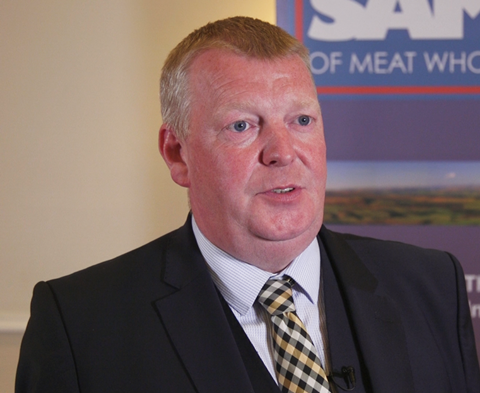The newly published EAT-Lancet Commission report states that a ‘radical transformation of the global food system is urgently needed’, including a greater than 50% reduction in consuming foods such as red meat.

The report claims that feeding 10 billion people a ‘healthy diet’ within safe planetary boundaries for food production by 2050 is both possible and necessary.
It also asserts that the universal adoption of a planetary health diet, which limits red meat intake, would help avoid severe environmental degradation and prevent approximately 11 million human deaths annually.
Below, various meat industry representatives as well as wider food experts, have shared their opinions on the report with Meat Management.
Kate Rowell, chair of Quality Meat Scotland (QMS), is concerned that the report suggests a global intake of red meat per day well below current UK NHS guidelines of 70g per day or 500g per week.

Rowell fears there is real danger of public confusion on red meat’s role in a healthy diet and people could miss out on vital nutrients such as zinc and iron which are provided by red meat.
On the environmental impact, Rowell said: “It’s important to put the emissions generated by red meat production into context and ensure that people are fully informed about the facts on our industry.
“Focussing on this one area diverts attention from more damaging environmental factors, for example transportation and carbon-based energy.”
Will Jackson, AHDB’s strategy director for Beef & Lamb, has also spoken out. He said: “This report appears to be another example of well-intentioned but potentially flawed thinking on how we reduce our impact on the environment.
“Farming, in particular dairy and red meat, is part of the solution, making best use of naturally occurring assets to feed a growing population. They an important nutritional part of a healthy, balanced diet.

“Despite the modelling presented by the EAT Lancet Commission, no study has specifically assessed the environmental impact of diets based solely – or largely – on plant-based protein, as opposed to a mixed diet containing animal protein.
“The real danger of this report is that, because it is so well backed financially and is being launched across the globe with little acknowledgment of regional differences, it will be taken at face value by people in the UK who may then put their health at risk and even worsen their personal carbon footprint”
Meat Advisory Panel member, Professor Nigel Scollan, added: “This latest report from the EAT Lancet Commission tells us what we have known for millennia: an omnivorous diet is optimal. This is the best way to balance the health of the nation and the health of the planet.

“Our goal should be to provide healthy food for 10 billion people by 2050. As the report explains, there will be a cost in terms of emissions to achieve this.
“But, by putting too much emphasis demonising animal based foods, we are in danger of being distracted from more harmful environmental factors such as the carbon monoxide produced by cars or carbonised energy production.
“At a time when the population is increasing so dramatically, it is essential that meat and dairy production continues to ensure global food security is achieved.”
The British Meat Processors Association (BMPA) has also responded, stating that the report seems to be depicting livestock farming as a static activity that’s incapable of evolving to reduce its environmental impact.
A spokesperson for BMPA said: “There are always two sides to every argument and it’s important to understand that the claims that EAT are putting forward are not all backed-up by the ‘sound science’ they claim on their website. Nor do they always explain how their goals can practically be met.
“The report sets a target to ‘reduce food loss and waste by 50% to decrease pressure on food demand.’ Ironically, however, EAT-Lancet's proposals for people to ditch meat in favour of fruit and vegetables could in fact increase food waste.
“According to the Food and Agriculture Organisation (FAO), 40-50% of fruit and veg is wasted while only 20% of meat/dairy is wasted. More fruit and veg production means even more food waste. Food waste already accounts for 8% of global emissions.
“On the health side of the equation, again, we must be careful when drawing conclusions on which to base policy decisions.”
Ian Stevenson, chief executive of the Livestock and Meat Commission for Northern Ireland (LMC), commented: “The report tells us much of what we already know and can agree on; food must be produced sustainably across the globe to ensure that a growing population can be fed.

“Where our viewpoint differs is the suggestion that global red meat consumption needs to reduce by 50% to approximately 14g a day.
“According to the National Diet and Nutrition Survey (NDNS) iron intake among Northern Irish females, especially those under the age of 18, is as little as 50% of the lower recommended nutrient intake.
“The red meat sector is a professional industry with a strong focus on all facets of social, economic and environmental sustainability. Red meat is not part of the problem for the future, it is part of the solution.”
Patrick Holden, chief executive of the Sustainable Food Trust, said: “We welcome the fact that the report highlights the urgent need for fundamental change in farming systems and diets. However, it does little to inform the public about the path to a sustainable future and in some key respects will make things worse.

“A key weakness in the report is the failure to fully differentiate between livestock that are part of the problem and those that are an essential component of sustainable agricultural systems. This results in messages that are likely to add to existing confusion around what constitutes a healthy and sustainable diet.”
Roger Kelsey FinstM, chief executive at National Craft Butchers added: "To some extent there is usually a degree of misinformation, misinterpretation and misreporting with published reports, and this one is no different.
"The report assesses the capability, based on current production methods and growth, of sustainably feeding a global population of 10 billion people by 2050. In doing so, the authors advocate a sustainable healthy diet with an average daily intake of 71 grams of animal protein. Being two parts fish, two parts poultry and one part red meat.

"It has to be appreciated this is a global average and ignores factors like climate, lifestyle and physical characteristics of populations, which is taken into account with Public Health England’s recommendation of 71 grams of red meat a day.
"There is evidence that British consumers are turning toward a more varied, perhaps better balanced diet, buying increasing amounts of better quality meat products, meat and poultry from independent craft butchers in doing this."
Norman Bagley, head of policy at the Association of Independent Meat Suppliers (AIMS) concluded: “In the real world, wide demand for red meat is going through the roof, so I don’t think we should be too spooked by this latest attempt to demonise it.”

Frank Clark, Scottish Association of Meat Wholesalers (SAMW) president, said: “Scotland’s red meat industry is a major contributor to the health and well-being of those who maintain a healthy and balanced diet in which red meat provides consumers with essential nutrients, including iron, zinc and B vitamins.
“Regrettably, an increasing amount of attention is being given to anti-meat lobby groups who have no qualms about ignoring such positive dietary benefits and no hesitation in promoting arguments which rely on so-called facts, which do not have any independent evidence to underpin their claims.
"They also have no problem ignoring counter claims, based on sound science, which do not conform to their anti-meat agenda. For example, a recent issue of The Lancet, publishers of the EAT document, featured a study report showing that eating red meat and dairy products actually reduces the chance of death by a quarter.

“Everyone has a right to their opinion and the freedom to choose how they live and what they eat, but let’s deal in scientific facts, not blind rhetoric and emotive language.
“The same applies to the impact of livestock production on climate change, which EAT identifies as a problem without addressing the many different production systems which are employed around the world. Livestock farming in Scotland, for instance, is fundamental to the transforming of otherwise inedible vegetal tissues, drawn from hill and upland pastures and crop residues, into essential nutrients for human consumption.
“These same pastures play a crucial role in our agroecology, including valuable carbon sequestration. In addition, livestock manure is often applied to such land instead of chemical fertilizers. This would not be the case if Scotland’s hills and uplands were required to be planted in fruit and vegetables.
"In reality, of course, many such pastures would be unsuitable for fruit and vegetable production, resulting in the sourcing of such foods being necessary from many hundreds of air miles away from UK consumers with our government having no control over how the related production is managed.
“Let’s see the EAT report for what it really is, namely a lobby push by an anti-meat organisation which is selective with the truth, at very best.”
Claire Holland, manager of the Q Guild of Butchers concluded: "There have been a number of stories like this in the media over the last few months - not all of which are correct and some actively misleading. We’re continuing to recommend that those looking to cut back on meat consumption and employ a flexitarian and balanced approach to their diet, should look carefully at where they source their meat, buying the best quality meat with strong local provenance.

"Q Guild butchers are well placed to support customers here – they’re at the top of their profession in terms of quality, hygiene, skills, provenance, service and above all, the meat they’re producing.
"Our butchers have also responded to feedback from the public with many telling us they’ve seen an increase in demand for healthier products (trimmed meat, protein meat boxes etc); or ready meals with increased vegetable content. The butchers we work with are incredibly innovative and skilled and at the end of the day, those offering a wider range with consistently high levels of quality are likely to thrive in this environment.”
The read the EAT-Lancet Commission report, click here.
This story was originally published on a previous version of the Meat Management website and so there may be some missing images and formatting issues.















